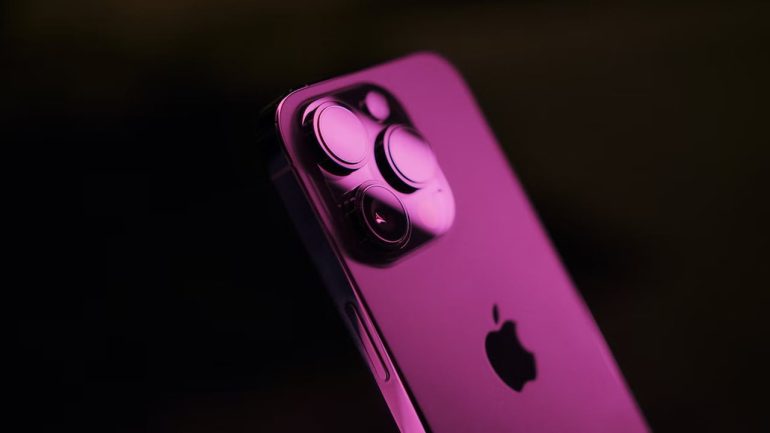- Apple and Google are integrating artificial intelligence (AI) into their smartphone updates, aiming to enhance user experience.
- Apple’s iOS 18 introduces a revamped Siri powered by Apple Intelligence, enabling more natural interactions and AI-generated responses.
- Google’s Android updates feature Gemini, an advanced AI assistant, offering real-time scam detection and auto-summarization of transcripts.
- Both companies address the longstanding issue of messaging compatibility between iPhone and Android devices by adopting Rich Communication Services (RCS).
- These AI-driven advancements signify a shift towards more intuitive and intelligent smartphone communication.
Main AI News:
In the ever-evolving landscape of smartphone technology, giants like Apple and Google continually strive to redefine the user experience. Each year, these titans unveil software updates packed with new features, from sleek interface redesigns to robust privacy measures and playful messaging tools. However, the forthcoming updates promise a more transformative impact as both companies pivot towards leveraging artificial intelligence to overhaul our mobile devices.
At Apple’s annual software developer conference, the tech juggernaut showcased a slew of enhancements slated for release with iOS 18 this fall. Among the highlights is a revamped iteration of Siri, Apple’s virtual assistant, boasting enhanced conversational capabilities and an AI-driven system capable of generating images, summarizing web content, and composing text-based responses. These advancements signify a paradigm shift in how users interact with their iPhones, ushering in a new era of seamless integration between human and machine.
Following suit, Google unveiled its own array of AI-powered features during last month’s Android announcements. From auto-summarization of audio transcripts to real-time scam detection during phone calls, Google is empowering users with tools designed to streamline daily tasks and enhance productivity. These innovations underscore the tech giant’s commitment to harnessing AI for the betterment of the mobile experience.
While the integration of AI holds immense potential, its widespread adoption hinges on resonating with consumers en masse. The true litmus test lies in whether these advancements can seamlessly integrate into users’ lives, enhancing convenience without compromising privacy or security. Despite the uncertainties surrounding nascent AI technology, one immediate change is poised to redefine mobile communication: the long-awaited overhaul of traditional text messaging.
For over a decade, the distinction between blue and green message bubbles has been a source of frustration for iPhone and Android users alike. With iOS 18, Apple aims to bridge this divide by adopting Rich Communication Services (RCS), a messaging standard that promises higher-quality media sharing between devices. This move not only improves user experience but also addresses longstanding concerns regarding messaging incompatibility and its perceived implications on market competition.
As the tech titans gear up to roll out their respective software updates later this year, the landscape of mobile communication stands on the brink of transformation. With AI at the helm, our smartphones are poised to become more than mere gadgets—they are evolving into indispensable companions, seamlessly integrating into every facet of our digital lives. As we eagerly anticipate the dawn of this new era, one thing remains certain: the future of mobile communication has never looked more promising.
The Impact of AI Integration on Smartphone Communication
In the fast-paced world of smartphone innovation, giants like Apple and Google constantly strive to push the boundaries of what’s possible. Each year, these tech titans unveil software updates brimming with new features, promising to enhance our mobile experience. But this year’s updates are different. With a sharp focus on artificial intelligence (AI), Apple and Google are poised to revolutionize how we communicate through our smartphones.
Apple’s recent showcase at its annual software developer conference unveiled a myriad of enhancements set to debut with iOS 18. At the forefront is a reimagined Siri, Apple’s virtual assistant, now powered by Apple Intelligence—a sophisticated AI model designed to understand context and engage in natural conversation. This upgrade promises to transform Siri from a mere tool into a proactive companion, capable of generating images, summarizing web content, and composing responses with unprecedented accuracy.
Meanwhile, Google is not far behind, with its own lineup of AI-driven features showcased during its Android announcements. From auto-summarization of audio transcripts to real-time scam detection during phone calls, Google’s AI initiatives aim to streamline tasks and empower users with unparalleled efficiency. With the introduction of Gemini, an advanced AI assistant, Google is pushing the boundaries of what’s possible on mobile devices, promising a future where smartphones anticipate our needs and seamlessly integrate into our daily lives.
But amidst the excitement surrounding these AI advancements, questions linger about their real-world impact. Will users embrace these new features, or will concerns about privacy and security hinder adoption? Only time will tell. However, one thing is certain: the days of traditional text messaging are numbered.
For years, the infamous green bubble has been a symbol of frustration for iPhone users attempting to communicate with their Android counterparts. But with the adoption of Rich Communication Services (RCS) in iOS 18, Apple is finally bridging the gap, promising higher-quality media sharing and improved interoperability between devices. This move not only enhances the user experience but also signals a shift towards a more open and inclusive mobile ecosystem.
As Apple and Google prepare to roll out their AI-powered updates later this year, the future of smartphone communication looks brighter than ever. With AI at the forefront, our devices are poised to become more intuitive, more intelligent, and more indispensable than ever before. As we stand on the brink of this new era, one thing is clear: the age of AI-driven communication has arrived, and the possibilities are limitless.
Conclusion:
The integration of AI into smartphone communication heralds a new era of innovation and convenience. Apple and Google’s initiatives promise to enhance user experience and bridge longstanding gaps in messaging compatibility. As AI becomes increasingly integrated into mobile devices, the market can expect a surge in demand for more intuitive and personalized smartphone experiences, driving competition and innovation in the industry.

